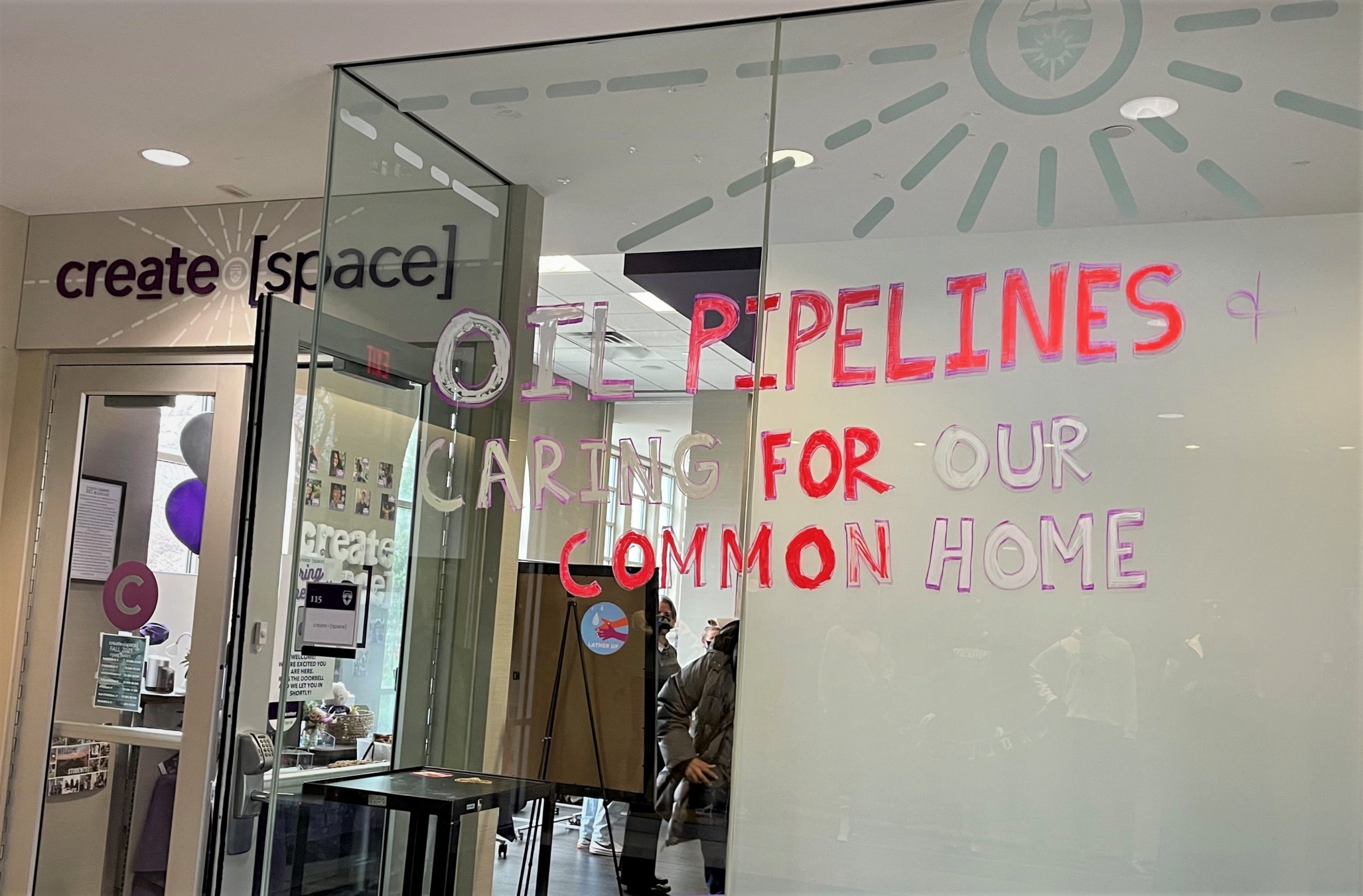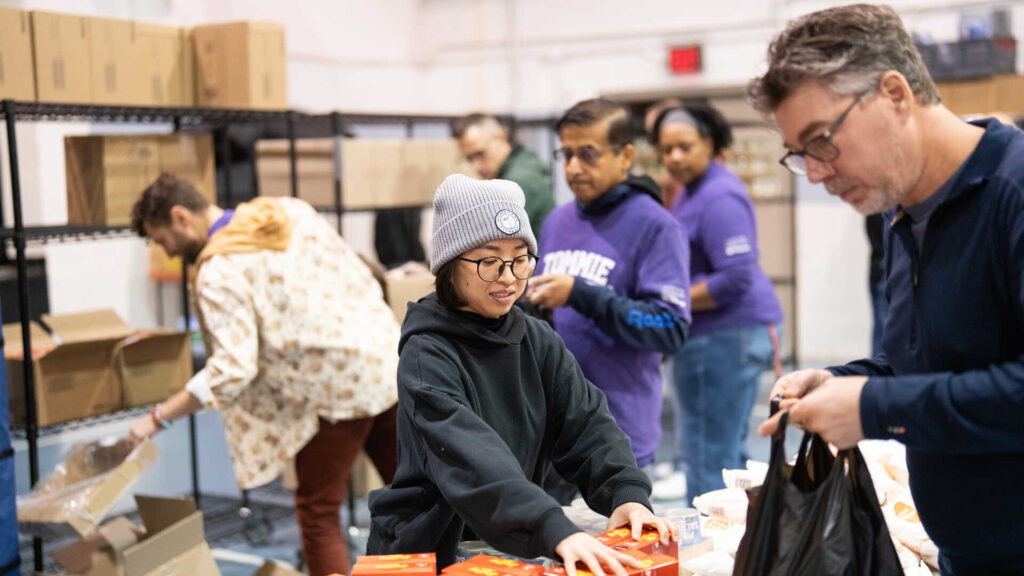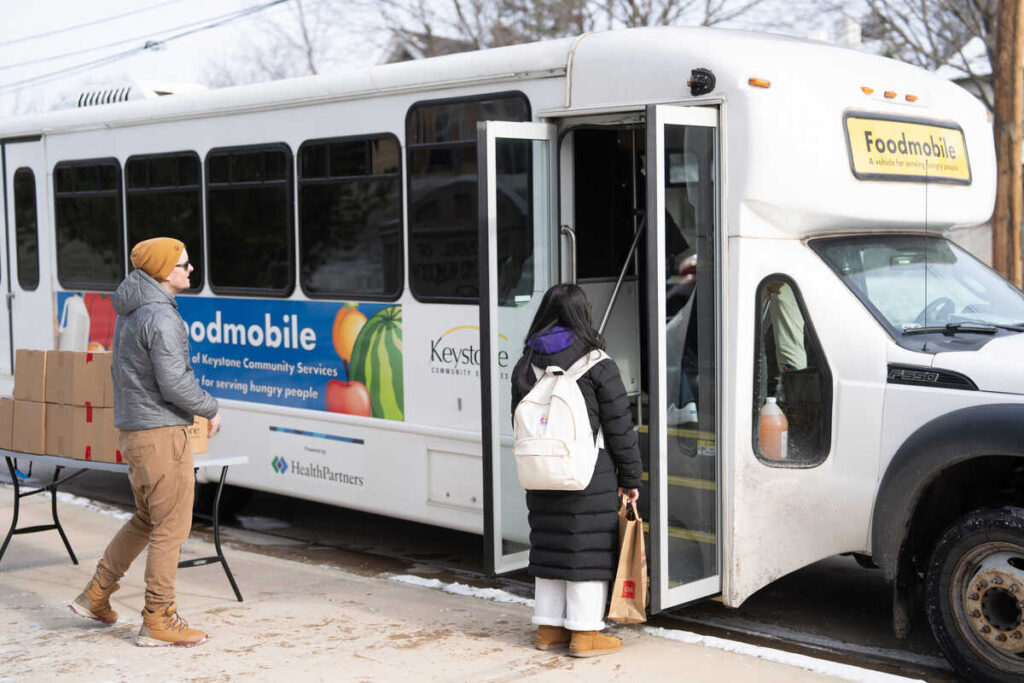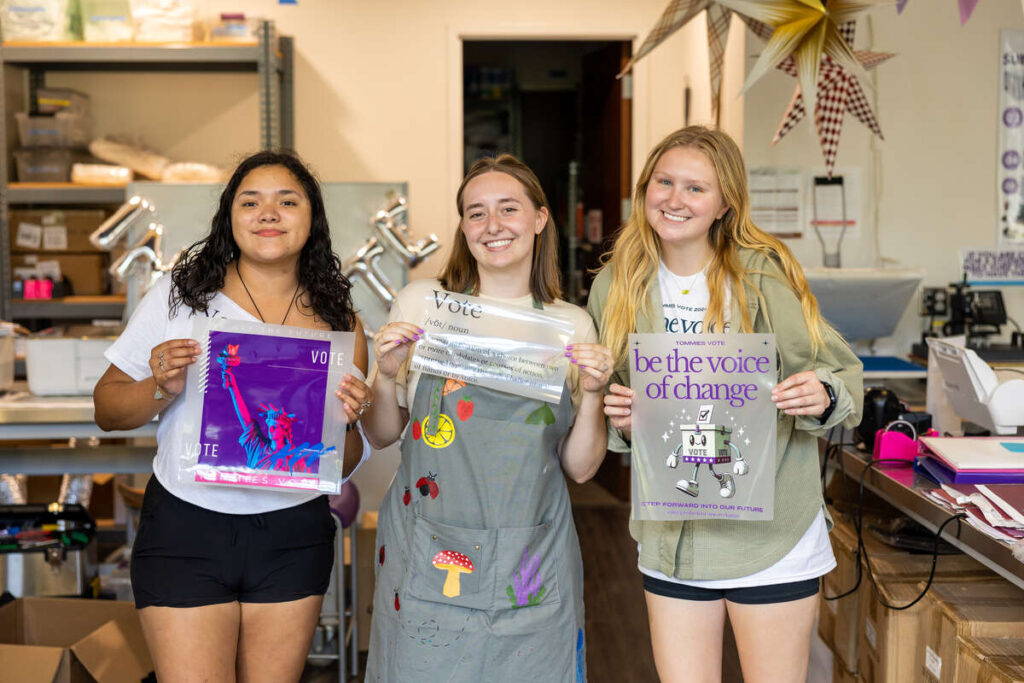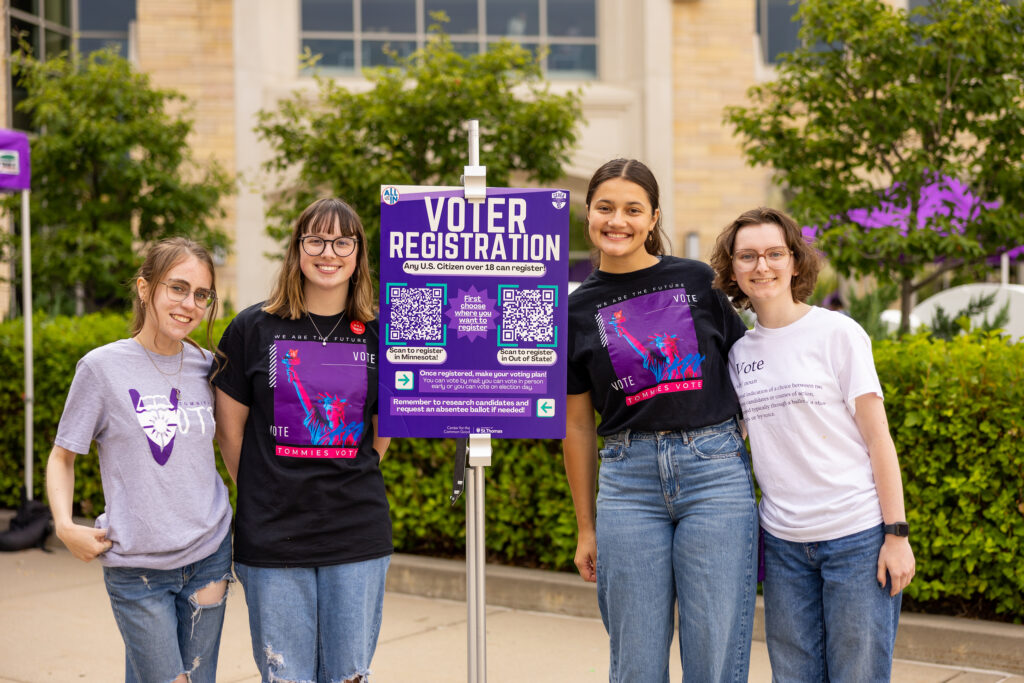The create[space] was buzzing with activity recently as students from Professor Cara Anthony’s Theology and the Environment course presented at an open house event, Oil Pipelines: Caring for Our Common Home.
Event attendees were invited into the space to learn about the Enbridge Line 3 pipeline, its impact and various stances regarding the viability of pipelines in the context of caring for our common home. Students from the class examined environmental, economic, religious, and cultural implications of the pipeline and gave presentations that included informational posters and SoundCloud compilations detailing their research. Participants had the opportunity to hear about a multitude of perspectives and ask questions to presenters. Reflecting on the open house, student presenter Bella Mascia ’23 said, “I hope that people [who attended the event] gained a better sense about what Line 3 is and what the pros and cons are. That way they can form an opinion based on what they have learned rather than what everyone is saying.”
The idea for the Oil Pipelines: Caring for Our Common Home event came out of the desire of the Theology and the Environment class to connect concepts they have learned in the classroom to real-world events and to share their findings with the St. Thomas community.
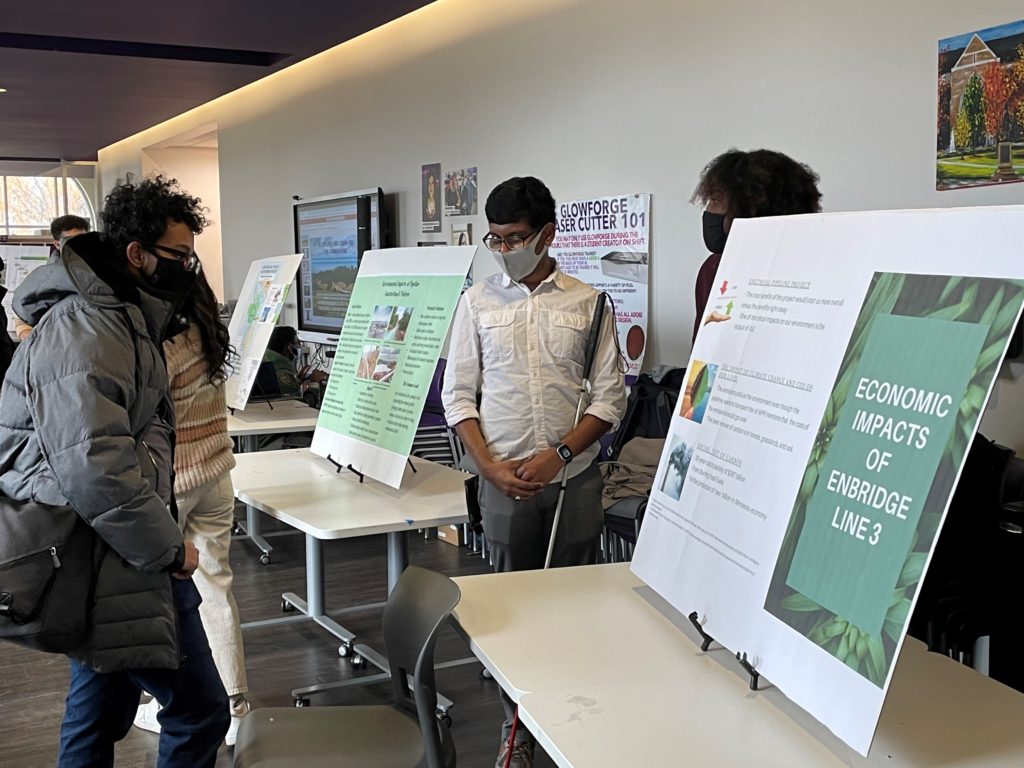
“We wanted a way to invite the St. Thomas community into an important energy and environmental justice issue unfolding right here in Minnesota,” Anthony said. “The open house brought student research on a controversial new pipeline together with an opportunity to write to decision-makers such as Attorney General Keith Ellison and Gov. Tim Walz, inviting students into the public conversation around energy policy and environmental justice.”
Event attendees were presented with different viewpoints regarding Enbridge Line 3 and its impact on our common home and were encouraged to make their own decisions about what they would want to advocate for.
In addition to doing coursework like readings and research and working on their presentations for the open house, students had the opportunity to engage with and learn from Minnesota Interfaith Power and Light (MNIPL), a local nonprofit organization that engages in dialogue and action focused on climate justice. Whitney Terrill, the MNIPL environmental justice program manager, visited the class and shared information about the organization’s programming regarding Enbridge Line 3 and discussed interfaith networking for environmental justice. Through working with MNIPL, students were able to connect topics that they discussed in class to an actual organization in the real world and to see an example of what advocacy can look like.
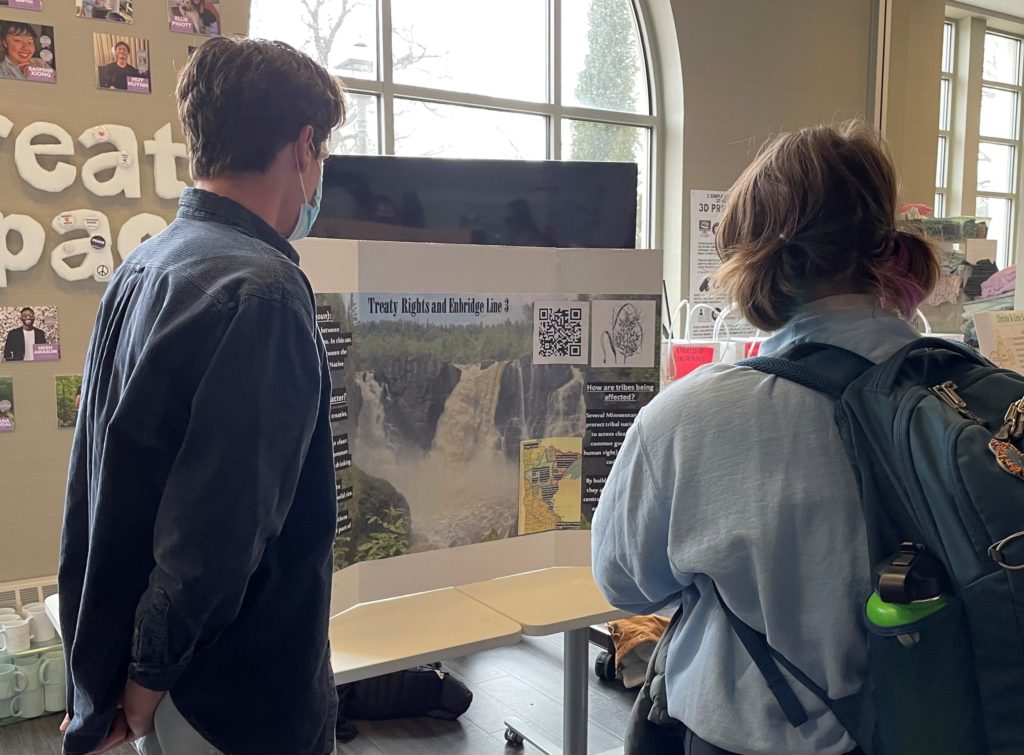
“Often students feel like bystanders in the events happening around them, and community-engaged learning helps them develop their own agency, especially as they see community partners in action,” Anthony said.
The Theology and the Environment class is one of many St. Thomas courses that are designated as Common Good Community-Engaged through the Center for the Common Good (CCG). Through Common Good Community-Engaged courses, St. Thomas students partner with community organizations to understand complex issues and work toward collective solutions. These partnerships vary in size and scope depending on many factors including the subject matter of the course and the goals of community partners.
“Community-Engaged courses may look different depending upon the discipline, the course and even the instructor teaching a particular course,” Jessica Hodge, faculty director in the Center for the Common Good, said. “I think this is a strength of academic community engagement, and we have some really amazing examples of how this plays out across different programs within the university.”
No matter what the collaboration looks like, the CCG works alongside faculty to ensure that best practices of community-engaged learning/service learning are being upheld as the university engages with partners in the community.
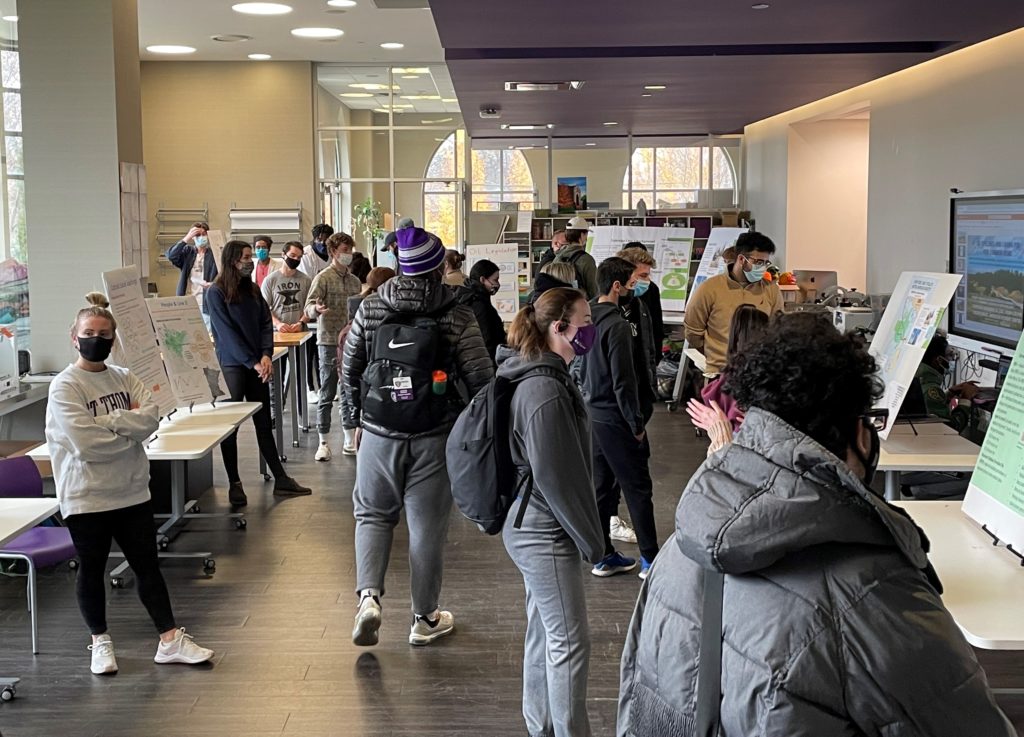
The Center for the Common Good is working to strengthen the number of Common Good Community-Engaged courses and Common Good Changemaking courses in the coming years and lifting up the collaborations of faculty, students and community partners engaging in this valuable work. These efforts fit in with St. Thomas’ ongoing strategic priority to “Engage All Tommies as Changemakers” as articulated in the St. Thomas 2025 strategic plan. The CCG is grateful for the work of professors such as Anthony who intentionally infuse community-engaged learning and changemaking into their courses so that the campus community may continue to create meaningful collaborations with our local and global community partners in order to work toward advancing the common good.
Curious to learn more about community-engaged and changemaking courses? Contact the Academic Community Engagement (ACE) initiative in the CCG at ACE@stthomas.edu.
Teri Mueller is program manager of the Center for the Common Good.
